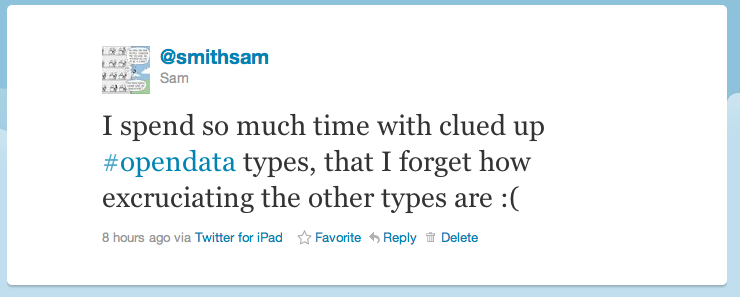Bill and Ben both say we won…

This is a draft that’s been sitting unpublished for a while, doesn’t really go that far, but is a useful reference for something that might follow.
Bill and Ben both say “#WeWon”
But not everyone yet agrees; and, in many organisations, they’re still under the impression they world operates how they thought it would. I’m not saying they’re right; but if there’s a conviction in our mind that truth doesn’t lie with them, there should be a possibility that truth doesn’t entirely lie with us either. It can be somewhere in the middle. Our reality may overwhelm there’s in the medium term, but in the short term, we can’t just ignore them.
So much practice in organisations predates widespread use of telephones, let alone the internet. Not necessarily in the people we deal with, who can be as progressive as it is possible to be; but organisationally, all the way down.
When was the last time that you were told “or you could fax it”?
If an organisation has put their faith in a structure, and fundamentally believes it is right, getting that structure to reshape itself can be impossible.
This is a relatively new problem; previously we’ve always talked at how to get the foot in the door. Now we’re all the way in the building, sitting in the big office with the laptop open; only to find that there’s only a rotary dial telephone on the desk (the new fangled fax machine is locked away in a remote office). As a result, the mind-shift that happens after you switch from dialup-modem to broadband hasn’t happened yet.

Some of the old battles are being refought, again and again, with people who first made some progress on them 20 (or just 2) years ago, but haven’t picked up on changes since then. That is not to diminish the work done in the past, but to suggest that the environment has changed more than they notice
There are large organisations internally trying to hold it together, while the world shifts underneath the pillars on which they built their reasons to exist. It’s not just large organisations.
The many facets of open data is moving so fast, that what seemed like a good idea 18 months ago is now redundant, and things that were inconceivable a year ago are now possible.
While dull hackdays repeat the same stuff, more organisations are starting to engage, and that broadens the interest, the topic, and most importantly, the diversity of people in the arena, even if some rooms have the same groups involved.
As someone said at #localgovcamp, there’s a lot of people still to be engaged. Someone else there spoke about a local campaign about libraries that led to 300 angry & engaged people, with the unstated outcome of 300 angry people who were now disengaged. How to do better there is obvious.
There is a great deal of evidence that good has been done for people – borisbike apps, train apps, bus apps; simple tangible benefits to aspects of people’s lives. But, what is inescapable, is, no matter the value of that, and it is great, it is still comparatively trivial to the potential that is possible.
In the same way that open source was a prerequisite for open data to become possible; what are the things that open data is a prerequisite for, that are now possible?
Or, as Bill Thompson so eloquently said at Cambridge Geek Night last night, “we need to give the enlightenment another 500 years”.
http://www.instapaper.com/text?u=http%3A%2F%2Fgurstein.wordpress.com%2F2011%2F07%2F03%2Fare-the-open-data-warriors-fighting-for-robin-hood-or-the-sheriff-some-reflections-on-okcon-2011-and-the-emerging-data-divide%2F&article=181356885
 Disruptive Proactivity
Disruptive Proactivity